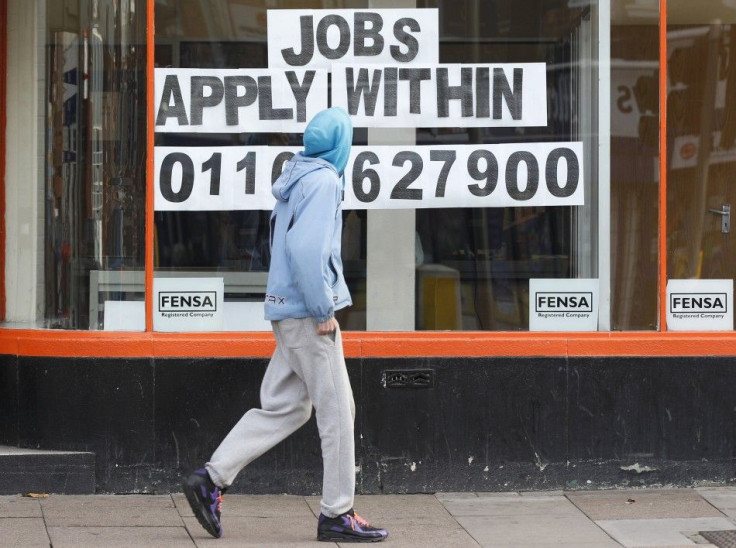Unemployment in Britain Jumps to 8.3%: Youth Joblessness at Record High

The unemployment rate in the United Kingdom jumped to 8.3 percent in the quarter ending in October from 7.9 percent in the prior quarter, with the number of jobless (2.64-million) reaching a 17-year high, according to data from The Office for National Statistics (ONS).
Perhaps more alarming, the number of jobless British youths set another all-time record – reaching 1.027-million. Nearly one-quarter (22 percent) of people between the ages of 16 and 24 are now without work, up from 20.8 percent in the prior quarter.
Too many young lives are being wasted in the dole queue, said Martina Milburn, chief executive of the Prince's Trust youth charity, in a statement.
It is frightening to think that more than two-fifths of unemployed young people have been jobless for more than six months. Long-term unemployed young people are the most vulnerable, with many trapped in a vicious cycle of joblessness, anxiety and depression. Government, charities and employers must work together now to help these young people escape a long and downward spiral.
Anne Marie Carrie, the chief executive of Barnardo's, the children’s charity, said in a statement: Today’s statistics represent yet again the plight of a generation of young people who are seeking but not finding opportunities to learn and to earn. While recent measures announced by the Government to help rescue young people from the trap of long-term unemployment are a good start, more must be done to prevent the 16 to 24 year-olds of today becoming a third of those parents expected to be living in poverty by 2020.
Carrie added: “It remains imperative that we do more to provide the right opportunities to the most disadvantaged and vulnerable young people so that they have a chance of achieving their potential, regardless of their background.
ONS also said that the total workforce fell by 63,000 to 29.11-million, driven primarily by 67,000 job cuts in the public sector. Meanwhile, the private sector added only about 5,000 jobs.
In addition, one-third of all jobless people (868,000) have been without work for more than one year.
However, surprisingly, the pace of unemployed persons claiming jobseekers allowance is showing signs of slowing down, edging up by only 3,000 – far less than expected by economists -- to 1.6-million last month.
Analysts were universal in their disappointment over the jobs data.
Hugh Pym, chief economics correspondent at BBC, saw little to boast about in the latest job figures.
“Worryingly for [government] ministers, public sector job losses in the three months to September far outweighed job creation in the private sector,” he wrote.
“With the prospect of very sluggish growth over the next six months, it is difficult to see how the economy will create enough jobs to stop unemployment creeping up, let alone bringing the rate down.”
Mike Fetters, director at totaljobs.com, told the Daily Telegraph newspaper: These latest depressing statistics don’t come, sadly, as a surprise. The labor market has been showing for months that we are sliding with ever greater speed into another recession and neither government nor business have much in the way of cards up their sleeves to solve an employment problem that is developing into a crisis.
Fetters added: With consumer confidence so low, companies simply do not want to take the risk of investing in the future by employing new staff. All of which is compounded by public sector job losses.”
Graeme Leach, chief economist at the Institute of Directors, was equally gloomy.
This is another grim month for jobs, with private sector companies still reluctant to hire, he told BBC.
The ongoing failure to resolve the euro crisis is likely to mean that unemployment rises still further over the winter. Many businesses are still watching and waiting.
Andrew Sissons, researcher at The Work Foundation, told the Telegraph: “The labor market is on a dangerous trajectory, as today’s numbers confirm that our private sector recovery has stalled. Unemployment will only stop rising when businesses regain their confidence. That will either require a rapid resolution to the Euro zone crisis, or a decisive signal from government that it is committed to boosting growth in the long-term. The government has made some important steps in this direction over the last month, but it must continue to pursue its growth agenda relentlessly.”
Vicky Redwood, the chief UK economist at Capital Economics in London, believes unemployment will continue to climb as the British economy likely sinks into another recession.
© Copyright IBTimes 2024. All rights reserved.




















